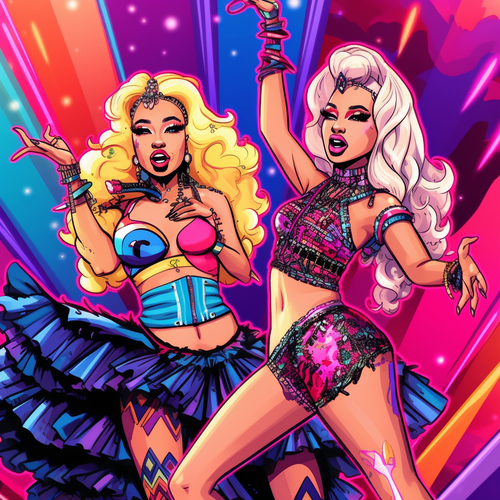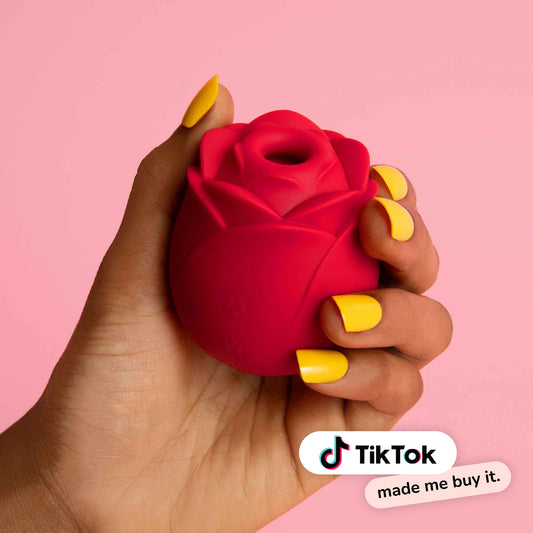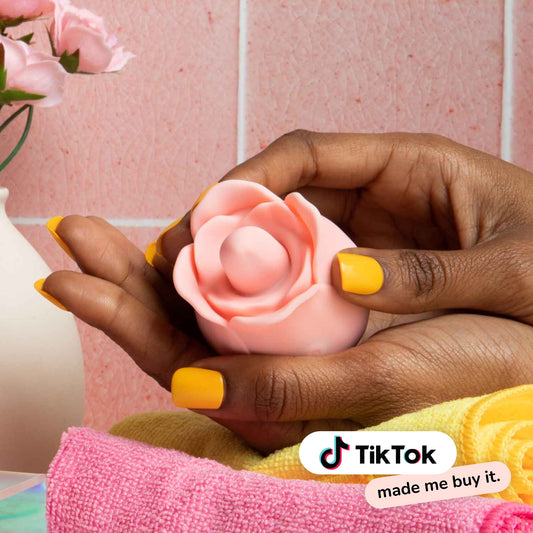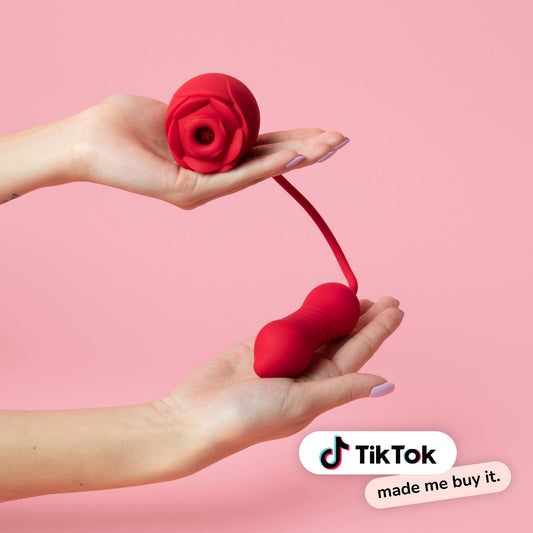
From Madonna to Cardi B: The Evolution of Female Sexuality in Pop Music
Pop music has long been a vehicle for artists to showcase themselves, including their sexuality. Female artists from around the planet have used pop music to stretch the limits of what is acceptable when it comes to female sexuality over the years.
From Madonna to Cardi B, the rise of female sexuality in mainstream music has been both extraordinary and divisive. The problem is that the entire concept of female sexuality has taken the globe by storm.
We'll examine at how this evolution started, as well as the most influential artists and their contributions to female empowerment. We'll discuss criticisms and controversies, as well as famous music videos.
The Importance of the Cultural Shift in Women's Sexuality
The cultural shift in women's sexuality that has occurred in pop culture over the last few decades has been significant, with profound implications for society as a whole. Female artists have contributed to breaking down barriers and stereotypes about sexuality that have long been used to oppress women by confronting traditional gender roles and promoting sexual freedom and empowerment.
One of the most significant advantages of this societal shift has been the increased visibility and acceptance of female sexuality and sexual desires. The change is not only gender-based; it is based on how people view femininity. We are seeing more and more men embracing this shift and embracing things typically feminine.
Women were often shamed or punished for expressing their sexuality and sexual behaviour in the past, whereas men were praised for doing so. This shift has opened the playing field.
Paving The Way Forward
However, thanks to the efforts of female artists in pop music, women are now more empowered to explore their sexuality and express their desires without fear of judgment or retribution.
Moreover, the cultural shift in women's sexuality has helped to promote gender equality and challenge traditional gender roles. By celebrating their own sexuality and promoting body positivity, female artists have helped to break down harmful stereotypes and expectations that have long been used to restrict women's choices.
While music has always been sexually charged (Thank you, Lucille Bogan, for one of the most sexually explicit songs of the 30s), music videos have not always been forgiving. With the digital age of the internet invading our everyday lives, we have access to music at the click of a button. We don't have to crowd into seedy bars or hide our radios under pillows to hear the soothing sounds of ecstasy that music produces. Hip-hop videos have pioneered the way forward for women's liberation. So how have popular music videos paved the way for this shift? Let's take a look.
Embrace Your Inner Prowess Here
Madonna: The Queen of Pop and Sexual Music
When it comes to female sexuality in pop music, there is no denying Madonna's impact. Madonna's music and performances in the 80s and 90s were groundbreaking, pushing the boundaries of what was acceptable for female artists. Madonna's early music was characterized by sexually charged lyrics and provocative music videos that sparked controversy and outrage among some groups.
She pushed the limits on sex, god, and anything else she wanted to. Her brand is credited with the rise in unapologetically sexy women in music, film, arts, and everyday life. Her work has taken sexual objectification and turned it on its head.
Madonna's influence on pop music and culture can be seen in many ways. She was one of the first female artists to take control of her own image, using her sexuality to her advantage in a male-dominated industry. Madonna was also one of the first female artists to incorporate dance into her live performances, using her sexuality to express herself through movement.
The 90s and Early 2000s: From Britney Spears to Christina Aguilera
Following Madonna's footsteps, the 1990s and early 2000s saw more sexually charged female music stars. Britney Spears and Christina Aguilera, in particular, carried on Madonna's heritage by pushing the boundaries of what it meant to be a female artist.
Britney Spears made her début in 1998 with the catchy and controversial song "Baby One More Time." The song's music video featured a teenage Spears dressed as a schoolgirl, which caused outrage among some groups who saw the outfit as inappropriate for a young girl her age.
Christina Aguilera, who became prominent in the late 1990s, was known for her provocative music videos and sexually charged lyrics. Her 2002 hit song "Dirrty" featured Aguilera dancing in revealing clothing and provocative dance routines.
The Rise of Beyoncé and Female Empowerment
In the 2000s, Beyoncé emerged as a powerful force in pop music. Unlike Madonna and the pop stars of the 90s and early 2000s, Beyoncé presented a new form of female sexuality, one that was focused on empowerment rather than exploitation.
Beyoncé's music questioned traditional gender norms. She used her songs to inspire women to be confident and proud of their bodies. She managed to present sexuality in a new and enticing manner; she portrayed herself as a strong, independent woman in charge of her own sexuality.
The importance of Beyoncé to the feminist movement in mainstream music cannot be overstated. Her songs and performances have inspired countless women to accept and appreciate their sexuality.
Shop Our Range Of Toys For Empowered Women Here
Sex and Empowerment

The sexual empowerment movement has not only led to how women portray themselves shifting. It has led to the way we look at sex overall. With Kanye West's "I Love It" out there - become a hit - the opening words being a woman ranting, "I wanna cum" we have truly embraced this shift and accepted our feelings on sex. Culturally we have taken the male gaze and turned it into something that works for us.
Women use their sexuality to get ahead without feeling sexually objectified. Instead, they take it as far as they want.
Further Reading: Male Gaze
The 2010s: Nicki Minaj and the Mainstreaming of Explicit Lyrics
In the 2010s, female sexuality in pop music took on a new form with the rise of Nicki Minaj. Minaj's music was characterized by explicit lyrics and provocative visual imagery, pushing the boundaries of what was acceptable for female artists in mainstream pop music.
Minaj's impact on the music industry and female sexuality in pop music is vital. She brought a new level of rawness and honesty to the genre, using her music to express herself and connect with her audience. Minaj's sexual behavior embodies more than mainstream ideas on sex and the female role. It pushes the boundaries in several ways. By grasping the female gaze, she has successfully taught young women they can simultaneously be powerhouses, dominant and soft. Minaj oozes soft femininity while also brandishing the whip of powerful sexuality.
The Empowerment of Women in Music
Throughout the years, the depiction of female sexuality in pop music has been controversial. While some have criticized it as being exploitative or degrading to women, others argue that it has been a powerful tool for empowering women. Many women in music have parodied the idea of stereotypical gender roles and the idea that women belong at home. With the evolution of music videos performing, gender and sex roles have changed.
Pop music has empowered women by challenging these traditional gender roles and societal expectations. Female pop stars like Madonna, Britney Spears, and Christina Aguilera used their sexuality to control their image and challenge the idea that women should be passive or submissive.
By presenting themselves as confident and sexually empowered, these artists inspired a new generation of women to be proud of their bodies and embrace their own sexuality.
Find Your Confidence Here
Queen B
Beyoncé, in particular, has been a champion of female empowerment through her music. In songs like "Flawless" and "Formation," Beyoncé encourages women to embrace their own power and reject societal norms that seek to control or diminish them. She has also used her music to address critical social issues, such as racism and sexism, and has been a vocal advocate for the Black Lives Matter movement and women's rights.
Minaj it Up
Nicki Minaj has also been a powerful force for female empowerment through her music. While some have criticized her explicit lyrics, Minaj has used her music to promote body positivity and challenge beauty standards that exclude women of colour or those with unconventional body types. She has also advocated for female rappers in a male-dominated industry, using her success to help pave the way for other women to follow in her footsteps.
Iggy Azalea's Drama
Despite the controversy surrounding her success in the music business, Iggy Azalea's success shows the complex and nuanced nature of cultural appropriation in pop music. While she has been accused of appropriating black culture, her success demonstrates the power of cultural exchange and hip-hop's influence on worldwide popular culture. It should be noted that even when women are celebrated, a dose of reality is needed.
Overall, Iggy Azalea's career serves as a reminder of the importance of thoughtfully engaging with cultural appropriation problems in pop music. While borrowing from other cultures can result in meaningful creative exchange, it is also critical to recognize and respect the cultural origins of these styles to avoid perpetuating harmful stereotypes and power dynamics. One must also note that she often features many women of different races in her music videos - giving more women the ability to see themselves in her shoes. In essence, Azalea inspires girls to go out and seek their dreams, even if they must catch flights to other countries and clean toilets until they make it.
Mamma Cardi B
Cardi B has emerged as an influential pop music force known for her unapologetically sexual lyrics and videos. She has been a controversial figure, with some criticizing her for promoting explicit content and others applauding her for challenging traditional gender roles and promoting female empowerment.
Cardi has come a long way in terms of her evolution from Pole to Pop Culture Queen. Her powerful lyrics mirror her personal life, where she has no shame and holds nothing back. She bares her all in her songs, fighting the stereotype that all strippers are boobs and no brains. She is genuine and raw.
Her music videos contain explicit sexual content in the lyrics and suggestive, provocative clothing.
A Pioneer For Body Positivity
Cardi B has also advocated for body positivity and diversity in pop music. In interviews and on social media, she has spoken openly about her body and encouraged women to embrace their curves and imperfections. In her music videos, she often features women of all shapes and sizes, challenging the traditional beauty standards that have long dominated the music industry.

Cardi B's influence on female sexuality in pop music has been significant. By embracing her sexuality and promoting sexual liberation for women, she has challenged traditional gender roles and helped pave the way for a new generation of female pop stars unafraid to embrace their bodies and sexuality. While controversies and criticisms still surround Cardi B and her music, there is no denying the impact that she has had on the music industry and society.
Shop For Your Quirky Kinks Here
Cardi B and Nicki Minaj: Different Paths to Female Empowerment
Despite their differences, Cardi B and Nicki Minaj have furthered the cause of female empowerment in pop music. Through their music and public personas, they have challenged traditional gender roles, promoted body positivity and sexual liberation, and helped pave the way for other women in the industry.
Moreover, both artists have used their platforms to advocate for women's rights and to call attention to issues such as sexism and misogyny. Nicki Minaj has been a vocal advocate for women in hip-hop, calling out double standards and encouraging more support and recognition for female rappers. Cardi B, meanwhile, has used her platform to speak out about issues such as sexual harassment and assault and has been a vocal supporter of the #MeToo movement.
In conclusion, while Cardi B and Nicki Minaj have different approaches to music and feminism, they share a commitment to empowering women and challenging traditional gender roles. Through their music and activism, they have helped to further the cause of female empowerment in pop music and beyond.
The Evolution of Female Empowerment in Music Videos
Music videos have played a significant role in the evolution and portrayal of female sexuality and empowerment in pop music. In the early days of music videos, female artists were often portrayed as sexual objects, with their bodies and sexuality used to sell records. However, over time, female artists began taking charge of their image and using music videos as a platform for female empowerment.
The evolution has been impressive, with many female artists challenging the double standard that seems to exist in the music video world. Men like 2-Chainz and 50 Cent, or any other rapper, can have explicit content surrounded by scantily clad women. Yet music videos produced by women are not given the same reception. Artists such as Madonna, Cardi, Iggy, and more are here to throw caution to the wind and rule the roost.
Looking For a New Toy? Shop Now!
A Worthy Queen Rhi-Rhi
Rihanna is a pop icon who has spent her entire career breaking down barriers and supporting body positivity. While many female artists have been praised for defying beauty standards and embracing their curves, Rihanna has been outspoken about supporting body positivity for men and non-binary people.
Rihanna has championed body positivity and diversity through her music, fashion, and personal brand. She has used her platform to support a broader variety of body types, skin tones, and gender expressions, challenging the media and fashion industries' narrow definitions of beauty.
Rihanna has been outspoken about the importance of self-acceptance and body positivity, urging her fans to embrace their individual features and reject the unrealistic beauty standards that have been imposed on them. Her fashion label, Fenty, has been especially welcoming, providing a variety of sizes and celebrating diversity in its advertising campaigns.
Differences Between Black and White Women in Pop Music
Historically, the experiences of black and white women in pop music have been very different. White women are frequently portrayed as the pinnacle of femininity and attractiveness, whereas Black women are stereotyped as hypersexual and exotic. These stereotypes have manifested themselves in the music business, with Black women frequently relegated to supporting parts or expected to conform to certain expectations of being a Black female artist.
However, as more Black women have risen to prominence in the pop music business, these experiences have converged. Beyoncé, Rihanna, and Cardi B are examples of black women who have challenged conventional beauty standards and advocated for body positivity and sexual freedom. Other black women's platforms are also used to fight for racial justice and gender equality.
In Conclusion
The evolution of female sexuality in pop music has been a significant cultural shift with critical societal implications. From Madonna's provocative performances to Cardi B's empowering lyrics, female artists have used their platforms to challenge traditional gender roles, promote sexual liberation and body positivity, and advocate for gender equality.
While there are differences in the experiences of a Black woman and a White woman in pop music, the merging of these experiences in recent years has helped promote diversity and challenge traditional beauty standards and gender roles in pop music.
The cultural shift in women's sexuality in pop music has significantly benefited society. By promoting sexual liberation, body positivity, gender equality, and diversity, female artists have helped to create a more inclusive, equitable, and empowering culture that values women's voices, experiences, and desires.
Want to celebrate your empowerment with a new toy? Shop now!






